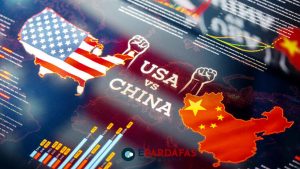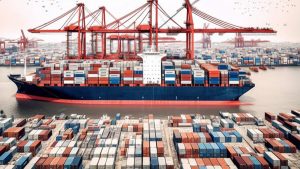
Two Arrested in Alleged Money Laundering Scheme Tied to Chinese Entities and Mexican Drug Cartels

The U.S. Justice Department has announced charges against two individuals for their alleged involvement in laundering money for Mexican drug cartels, including the Sinaloa and Jalisco cartels, which authorities say have “caused the worst drug crisis” in U.S. history.
Officials arrested Tan Li Pei of Georgia on May 22, the Department of Justice (DOJ) said in a statement issued that day. Chen Chaojie, a Chinese national living in Chicago, was apprehended on April 16, according to court documents filed in the U.S. District Court for the Eastern District of Virginia.
U.S. prosecutors accused Chen and Tan of working for a transnational money laundering organization, conducting financial transactions with profits derived from selling fentanyl and other illicit drugs in the United States. The authorities didn’t reveal the organization’s name but said “millions of dollars” in illegal narcotics proceeds had been laundered.
Transnational Money Laundering Scheme
According to the DOJ, the two defendants and their co-conspirators allegedly traveled across the United States to collect money generated from the sale of fentanyl and other illicit drugs. They are accused of collaborating with individuals abroad, including in China, to launder the profits through financial transactions aimed at concealing the money’s source.
Prosecutors charged Tan and Chen, in separate criminal complaints, with conspiracy to commit money laundering, which carries a maximum prison term of 20 years.
Seized Cash and Suspicious Transactions
The U.S. law enforcement agency seized a large amount of cash from Chen before his latest arrest, suspecting the money to be profits from drug trafficking. In April 2019, over $200,000 in cash was discovered in his vehicle during a traffic stop by Michigan State Troopers. Investigators suspected it to be profits from drug trafficking.
Chen denied ownership of the money, telling investigators via an interpreter that a “friend” had asked him to pick up the bulk of cash from an unknown male for cellphones. He stated that his communications with the “friend” were conducted on WeChat, a messaging app popular among Chinese, according to the document.
In April 2020, Chen was arrested again after investigators seized over $149,000 in cash during another traffic stop in Chicago. Chen claimed he worked for a Hong Kong-based company whose operator paid him $7,000 each month to deliver “electronic products to ‘customers’ in the Chicago area in exchange for bulk cash,” according to the document.
The operator, identified by Chen as “Liu,” messaged him a “code” that Chen would use to confirm customers’ identities. The investigation later found that the “codes” were the serial numbers on U.S. currency notes, which investigators described as “a common tactic used by money laundering organizations.”
In a search of Chen’s residence, law enforcement officials discovered ledgers, a money-counting machine, and other materials suspected to be used in illegal activities. An analysis of the ledgers is still underway, but investigators have identified recorded transactions totaling at least $8.9 million, according to the complaints. Chen was released after the interview.
Global Supply Chain and DEA Report
The indictment came as an annual report from the U.S. Drug Enforcement Administration (DEA) highlighted the threats posed by two Mexican cartels, Jalisco and Sinaloa, which operate in all 50 states and have “effectively eliminated any competition,” according to the federal agency.
“Together, the Sinaloa and Jalisco cartels have caused the worst drug crisis in U.S. history,” the report released on May 9 states. “They dictate the flow of nearly all illicit drugs into the United States, and their dominance over the synthetic drug trade in particular is evident in the relentless stream of illicit fentanyl and methamphetamine crossing the border toward U.S. markets.”
Chinese Entities in the Supply Chain
Companies in communist China appear to be key players in the global supply chain developed by the two crime organizations. According to the report, the cartels rely on Chinese suppliers to obtain precursor chemicals and pill presses, which are shipped to Mexican labs to manufacture fentanyl and other synthetic drugs that are smuggled to the United States. Finally, Chinese money launderers move profits from drug dealing from the United States to Mexico.
“Drug trafficking organizations based in Mexico and South America are increasingly utilizing China-based underground banking systems as their primary money laundering mechanism,” DEA Administrator Anne Milgram said in the report.
The arrests and ongoing investigations underscore the complex and international nature of modern drug trafficking and money laundering operations, highlighting the need for global cooperation in combating these transnational criminal activities.
- Madhes Province Holds Vast Development Potential: Prime Minister Oli
- Man Arrested for Using Forged Document to Exploit Community Forest in Achham
- Health Minister Paudel Highlights Nepal’s Progress and Challenges at UN Health Commission Session
- Nidhi Calls on Party Cadres to Strengthen Nepali Congress Organization












Comments